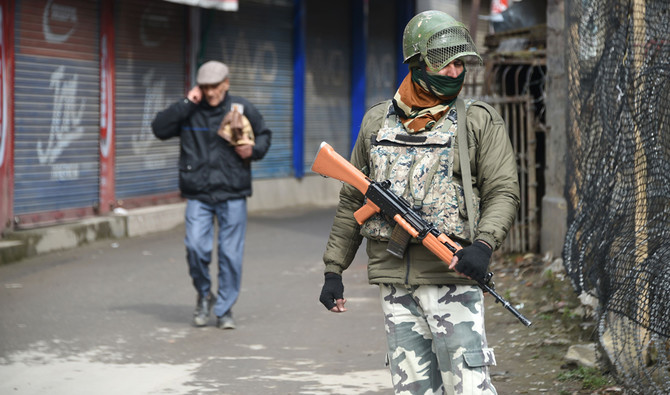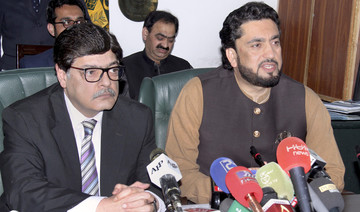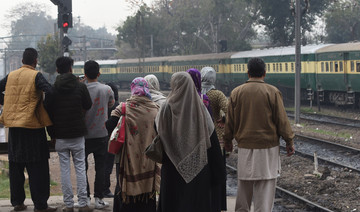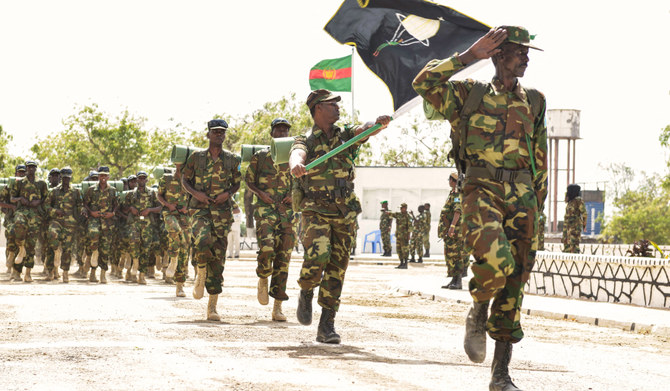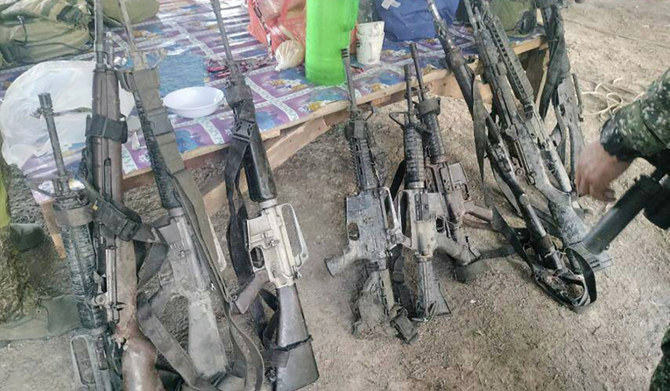NEW DELHI: There was a shutdown in Indian-administered Kashmir on Tuesday over attempts to change a law that gives special rights to the state and the people living there.
Trade associations staged the one-day in strike in protest at calls among the ruling Bharatiya Janata Party (BJP) to change Article 35A, which gives Jammu and Kashmir a special status in the Indian Constitution.
Article 35A confers special status to permanent residents and bars people from outside the state from acquiring any immovable property inside it. It also gives permanent residents special rights and privileges in public sector jobs, acquisition of property in the state, scholarships and other public aid and welfare.
Besides Article 35A, Article 370 of the Indian Constitution also grants special status to Jammu and Kashmir.
“The BJP has only one agenda in Kashmir and that is to remove Article 370 and 35 A - the two main important provisions that give specials rights to the state of Jammu and Kashmir,” Haji Muhammad Yasin, chairman of the Kashmir Economic Alliance, told Arab News. “They want to alter the demography of the Muslim majority state by diluting Article 35A and, once they succeed, they can do anything in the valley. It’s a question of the survival of the state. We will oppose any attempt to alter Article 35A with all our might.”
The shutdown came days ahead of a crucial hearing in the Supreme Court on Article 35A that will decide if the constitutional provision is valid.
Last September the BJP’s Ashwini Upadhyay questioned Article 35A’s validity and filed a plea with the Supreme Court to rule on the issue.
His petition said that the provision was a temporary one and it, along with Article 370, had lapsed with the dissolution of the Jammu and Kashmir Constituent Assembly in 1957.
The provision was incorporated in 1954 by India’s first prime minister, Jawaharlal Nehru.
“The question on Article 35A is sub judice and it is premature to comment on this,” the valley’s BJP leader Dr. Hina Bhat told Arab News. “No political party or group has a right to talk about or discuss this issue when the matter is pending in court.”
She said she would respect whatever judgement came in the Supreme Court.
Other political parties have warned about the consequences of changing or scrapping Article 35A.
“We have to get united and sit together to chalk out a strategy to save Article 35A because if there is any tampering with it, then there will be no question of saving Article 35A, but about saving Jammu and Kashmir,” Mehbooba Mufti, former chief minister of the state and leader of the People’s Democratic Party, told Arab News.
Sheikh Showkat Hussain, professor at the Central University of Kashmir, said Article 35A protected the whole state of Jammu and Kashmir, its properties and services.
“It’s a fundamental rights for everyone to move and settle down anywhere in India. It was anticipated that people would come and settle down in Jammu and Kashmir, so constitutional provisions were made in 1954 to protect the state from outside settlers. But such exclusive provision does not exist only for Kashmir, there are other states also where special provisions have been made to protect the rights of the local inhabitants,” he told Arab News.
“The Rashtriya Swayamsevak Sangh - the ideological godfather of the BJP - has long been saying that the demography of Jammu and Kashmir needs to be altered and today’s politics are the reflection of that thought. The politics around Article 35A are part of the majoritarian project of Hindu right-wing parties.”
He said the BJP wanted to create “Kashmir phobia, Pakistan phobia” to consolidate the Hindu vote ahead of elections this year.


